Some people have more influence on others whether they know it or not. Think about this. When a teacher asks a question, it’s usually the extroverts who answer it. But what if those extroverts just waited a few seconds before answering? This would give time for introverts to think and answer. Learn more about how you can influence others with your host, Dr. Diane Hamilton and her guest Vanessa Bohns. Vanessa is the author of the book, You Have More Influence Than You Think. Join in the conversation today for a deep dive into her newest book about influence.
The pandemic has changed everyone’s mindset on deep and personal connection. Yes, it’s okay to connect with people online but it is much more meaningful when it’s face-to-face. Learn how to make meaningful connections with your host, Dr. Diane Hamilton and her guest Susan McPherson. Susan is the author of the book, The Lost Art of Connecting. Join in the conversation today for a deep dive into her newest book about connection.
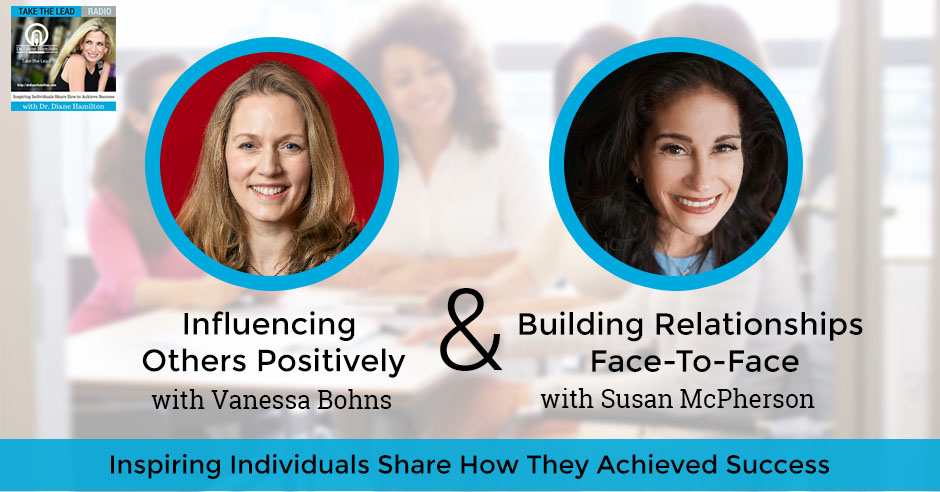
I’m so glad you joined us because we have Vanessa Bohns and Susan McPherson here. Vanessa is a social psychologist and professor at Cornell University. She’s also the author of You Have More Influence Than You Think. Susan is the author of The Lost Art of Connecting: The Gather, Ask, Do Method for Building Meaningful Business Relationships. We have some interesting books to cover. I’m so excited to have both of them on the show.
—
Watch the episode here
Listen to the podcast here
Influencing Others Positively With Vanessa Bohns
I am here with Vanessa Bohns who is a social psychologist and professor of organizational behavior at Cornell University. She’s also the author of You Have More Influence Than You Think. It’s so nice to have you here, Vanessa.
Thanks for having me, Diane. I’m glad to be here.
I was looking forward to this. I am fascinated by any of the behavioral things that we deal with in business. Influence is such a fascinating topic. I know that you’ve done a lot of writing in The New York Times, Harvard Business Review, Wall Street Journal and all that. A lot of people probably have read your work and don’t even know it. In case they aren’t aware of your background, can you give me your backstory?
[bctt tweet=”People are not great at recognizing the role they play in other people’s lives. ” via=”no”]I am an experimental social psychologist. I’m interested in understanding social interactions primarily through laboratory and field experiments, as well as hybrids between the two where I bring people into the lab and then have them leave the lab to go interact with people in the real world. I then analyze how those interactions match with people’s expectations. That’s my favorite paradigm to use. I got my undergraduate degree in Psychology from Brown and my PhD in Psychology from Columbia. My background is very much in psychology but I’ve spent most of my postgraduate academic career in Organizational Behavior Departments at the University of Toronto and University of Waterloo in Canada. Now at Cornell, where I teach organizational behavior negotiations, morality at work and applied insights from social psychology to the workplace.
I had Albert Bandura on the show and I’ve had a lot of great names in psychology and in different realms that touch on this. In my classes, things come up like the Milgram experiment. I am wondering what led to your interest in writing this book. I know you’ve written so much in general but what was the influence for you there?
I wrote this book for a couple of reasons. First, from an academic standpoint, I kept seeing so many books, talks and articles about how to gain influence. The popularity of that message makes it seem like people are hopelessly lacking in influence. As a social psychologist who studies social influence, I’m constantly seeing how much influence people have over one another. You mentioned the Milgram experiment. That’s a classic example of the extraordinary influence one person can have over another person.
This idea that so many of us are lacking influence didn’t jive with the research I see all the time. I wanted to write a book that explains the biases we all have that lead us to overlook the influence we have. There is a lot of research pointing to this blind spot that we have for our own influence over other people, showing that people notice us and the things we do more than we realize. They’re impacted by the things we say more than we realize and we’ll agree to do things for us more than we think that they will.
The book is an attempt to put that message out there to counter those other messages. Maybe we don’t need to spend so much time trying to figure out how to gain influence but rather spend some more time taking a step back and becoming more mindful of the influence we have already. There’s a second reason I wrote it, which is more personal. There’s the academic, where I see this message and I want to counteract that a little bit. A more personal reason is that I’ve always coped with my own insecurities by reminding myself of what the research says.
Every time I leave a meeting cringing about some stupid thing I said, I remind myself that the research shows we’re too hard on ourselves in our post-interaction replays. Every time I worry about asking someone for something, I think of my own research on how much better that interaction is likely to go. Those things have always been so helpful to me to be like, “Based on the research, I’m doing okay,” or, “Someone will agree to this.” I felt like that could help others as well.
As you’re talking about the things you do in research, I wrote my doctoral dissertation on emotional intelligence and part of that is self-awareness. You’re talking about some self-awareness issues here. Did you tie this into emotional intelligence in your research?
Not in the book so much but that definitely is something we’ve thought about. One part of emotional intelligence is empathy. There’s a lot of research, as I’m sure you’re aware, on how feeling empathy leads us to help other people more. You empathize with their plight and you feel compelled to make things better for them. We’re looking at the flip side of whether being more able to feel empathy or having this higher emotional intelligence essentially, that’s a component of it, also makes you think that others are more likely to help you. You’re more able to see that other people do want to help and find it hard not to help when someone’s in need. We have found some correlations with empathy specifically and expectations that somebody else will help you.
Empathy comes so much in my work. I study curiosity and perception. Empathy seems to come up in everything and building it is so important. You can’t build empathy so much without asking questions to find out more about other people. I love how it all ties back to curiosity, which is what I’m so fascinated with. Having that curiosity about yourself and what makes you influential. You and I mentioned Milgram, which I’m sure some people may not remember but that was when they were zapping people in an experiment then people didn’t even know that this was pretend that they were zapping people in this experiment. They were just going along with whatever the person in the white lab coat said. That’s how the experiment was. You probably say it more eloquently.
You’ve got an experimenter in a white lab coat standing behind someone telling them that the experiment must continue. They have to keep doing this thing that it’s staged to make it feel real like you’re shocking another person to the point where they’re making noises that make it sound like they might be physically in danger. One of the things that I like to point out when I talk about the Milgram experiment is that we often think about that person who the experimenter was egging on and like, “Would I stand up and say no?” My research is more from the perspective of the experimenter, where if you are egging someone on, you know how hard it would be for them to say no. I wonder what was going on in that experiment. I’m so surprised if people aren’t stopping.
Can you imagine that they just kept doing it? I was a pharmaceutical rep forever. I’d look back at the influence that doctors have and what people think they know versus what they probably do know. You always put somebody else on a certain pedestal at times because you think that something goes along with something else. The older I get, the more cynical I get that I am more realistic. Does age have anything to do with how we look at influence?
I get asked that question all the time. It’s funny because if I present my research on underestimating your influence on a younger group, they’ll say, “That’s probably older people. We have all this confidence. We don’t underestimate our influence.” When I present it to older people, they say, “That’s young people. They don’t understand.” Everyone has this intuition that there’s some age difference there. Most of my studies, to be fair, are conducted on college-age kids. Although we do have studies as well with working adults.
I’ve done interviews with people who are deans of universities and their misperceptions seem universal. This idea that we are not great at recognizing the role we play in other people’s lives. We’re aware of how we’re impacted by other people, like the people who’ve cut us off when they’re driving and the people who are talking too loud at the table next to us back when there was actual restaurant dining. We’re less aware of the things we do that are impacting other people in positive or negative ways. That seems to be fairly universal.

Influence Others: Having empathy also makes you think that others are more likely to help you. You’re more able to see that other people actually do want to help and find it hard not to help when someone is in need.
I get a lot of people who asked me for advice and I’m like, “I don’t know any more than you know.” I have a friend and she has a coffee mug that says, “What would Diane do?” She’ll hold it up while we’re talking as a joke. There’s a responsibility that they think you know something that’s going to be better than what they know sometimes. Isn’t there a responsibility that comes with this influence that we have over people?
Yeah, for sure. If we don’t recognize how seriously people may take the things we say and the advice we may give them, we have a tendency to throw things out there without thinking and not being so mindful about things. There is this responsibility that we know you can potentially be careless about the things you say if you don’t take seriously the fact that someone else is listening and they’re probably going to remember it and maybe take it to heart.
It’s funny, there was an article that I found interesting that you bring up the point about advice. Even as you get older and you become an “expert” and people want your advice, there’s this idea that older means better advice. There’s this paper where younger people underestimate how much older people would take their advice to heart. We think that if we’re young, what’s the point of giving our parents advice or our boss’ advice? Because they won’t take advice from us. In fact, we underestimate that as well. People in lower power positions also have this upward influence.
It is interesting how much my kids have a certain influence and they are around certain things that I’m not exposed to. I could see it definitely going both ways. What you do in your book is important because you discuss a lot about the art of asking, which is important since I researched curiosity. If you ask more questions, you can find out more about why people think something’s important. Tell a little bit about how you cover the art of asking questions in the book.
One of the things that also links to your work on curiosity and on asking questions when you’re curious is that for one, part of the reason that we have this bias where we don’t realize our influence over others or this blind spot that we have for our own influence. We try to take other people’s perspectives as opposed to get perspectives. There’s this distinction that’s been made by Nick Epley and his colleagues between taking perspective and getting perspective. Taking perspective is like searching your own mind for what you think someone else might be thinking. I’m going to try to take this person’s perspective but I don’t ask any questions so it’s still all that perspective-taking is coming from my own preconceived ideas about what that person might be thinking.
Getting perspective is all about asking questions. Instead of trying to figure out what’s going on in someone’s head without asking them, I go ahead and ask them. They show, not surprisingly, that getting prospective asking people makes you more accurate about what they’re thinking and what they’re thinking about you. The other part of that is that there’s also some other research that I talked about showing that people are happy to answer personal questions more so than we think they’re going to be.
The researchers gave people the option of either asking something tame. It could be saying, “What’s your opinion on a TV show?” Something that’s non-controversial or asking something more controversial and potentially a little too personal like, “What’s your opinion on abortion?” What they found is that people reacted well to being asked, even the more personal questions more so than we think. We gain someone’s perspective by asking and we can ask more than we expect. We hold back a little too much when we ask things.
[bctt tweet=”People in lower power positions have this kind of this upward influence on others. ” via=”no”]When I researched curiosity, I was looking at the things that keep people from being curious, what holds us back from asking questions and things like that. After years of study, I found that there were four things and the acronym is FATE. It’s Fear, Assumptions, Technology and Environment. You’re dealing a lot with the assumptions aspect, that thing we tell ourselves. “I’m not going to be good at this. They already know more than I do. If I ask about this, they’re going to give me more work and not pay me,” whatever it is that we have going on in our head. How much do assumptions play a part in our interactions at work?
That’s definitely a huge part of it. Going back to this distinction between perspective taking and perspective getting, people think that if they try to take someone’s perspective, they’ll be accurate at guessing what someone else thinks or believes. That gets to those assumptions. We think that we have people figured out. In fact, when we asked and test those assumptions, we often find out that they’re false and we could be more accurate by asking.
This gets at the fear point. A lot of my studies show that people are self-conscious about asking for things. They worry, “If I ask for something too personal, it’s going to make the interaction awkward.” “If I ask them to do something, they’re going to reject me or think that there’s something wrong with what I’m asking for.” We have a lot of fear about asking for all sorts of things as well so it applies to both of those aspects.
The fear thing was interesting. Some of the research out of Oxford and other places when I was looking about women versus men asking questions after watching a web seminar, men are 2.5 times more likely to ask questions. Men have already asked six or more questions or somebody has asked questions before women raise their hands. There’s all this information out there, which is fascinating to look at. As I look at the subtitle of your book, How We Underestimate Our Power of Persuasion and Why It Matters, why does it matter?
Part of why it matters is because we miss out on opportunities and that’s the more typical, you can use your influence for good, you can use it to get what you want, etc. There may be situations where you hold back and you don’t make things better for yourself or others because you don’t realize that you can. That’s 1/2 of it and that’s the more traditional way of thinking about influence and trying to gain influence. The part that is interesting is that it also suggests that there are times when we are influencing people in potentially negative ways and being more aware or mindful of the ways we’re doing that could help us potentially even pull back a little bit and try not to use our influence so much.
The example you made of people asking questions in class and the gender difference that’s there, is interesting. One of my colleagues was telling me about a research study that either she or someone else was doing where they told the men in the classroom to wait like, “Don’t raise your hands right away.” If the men recognize that they are contributing to this norm, that if they just held back a little bit in jumping in that the women would ask more. They can use their influence in a powerful way by not raising their hand. It’s being aware that like, “When I raise my hand, I’m perpetuating these social norms. I’m having a big influence on what’s going on in the classroom. I want to be aware of the dynamics that I’m also perpetuating because that can have an important impact on everybody.”
That reminds me of when I used to deal a lot with introvert versus extrovert discussions. You tell extroverts, “Maybe if you just wait a few seconds more than you normally would after you ask a question to give the introvert time to think.” A lot of extroverts are thinking, “If you didn’t hear me, I’m going to answer this for you because I don’t want you to look bad that you didn’t answer it,” but they’re just processing. We’re back to empathy, understanding something from somebody else’s perspective. I could see that this is important. I’m curious if you had any case studies or any examples that you’d want to share that you had in the book of how this has been helpful.

Influence Others: Taking perspective is about what you think someone else might be thinking. While getting perspective is all about asking questions.
Some of the case studies specifically look at the ways in which we might misuse our influence, for example. One of the ones that I talked about is an example of a Rutgers coach who was trying to get his players to take the game more seriously and improve on their free throws. He staged this strip free throw contest as part of a formal Rutgers practice session. He wound up having some of his best players stripped down naked because they happen to be not great at free throws on that day or in general and run around and become completely humiliated.
Afterward, they wound up suing him, not surprisingly. His way of interpreting the situation was to say like, “It was all fun and games.” This is a classic example of underestimating our influence. “If they didn’t want to participate, they didn’t have to. Someone can say no if they feel uncomfortable with something.” In fact, it is so hard for people to say no to us especially when we’re in positions of power like a coach in formal practice.
That was an example of underestimating your influence and failing to recognize how that can hurt someone. He wound up losing both of those players. They went to other teams and they performed well. The flipside of that is that one player, in particular, found a coach who was seemed to display a lot of emotional intelligence and a lot of empathy and was aware that he played a big role in this person’s life. He could coach him and help him like the sport again because he was feeling down on it. It was a complete contrast where this second coach felt so much responsibility for the influence that he had and that showed. This player succeeded and they wound up making it to the NCAA tournament that year. Whereas the former coach didn’t realize how much he was impacting his players and wound up losing them.
[bctt tweet=”We can’t expect others to reciprocate if we don’t do the same. ” via=”no”]It is amazing how people don’t recognize the power of their position. You’re bringing up some important things in the questions that you address in the book. I noticed that you had things like, “How much did she take to heart what I said earlier? Do they know they can push back on my suggestions? Did he notice whether I was there? Will they agree to help if I ask?” These are the things that a lot of us ask ourselves. When you’re in class, you want to ask a question but you think you’re the only one who has that question so you don’t ask. Nobody wants to look dumb. They don’t want to look like they don’t know at all. What’s the best advice you think that people get from learning what you’ve written?
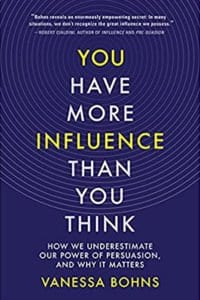
You Have More Influence Than You Think: How We Underestimate Our Power of Persuasion, And Why It Matters By Vanessa Bohns
For the most part, we’re a lot harder on ourselves than we need to be. There’s a lot of research on overconfidence and a lot of domains. I hear a lot about overconfidence in investments, risk-taking and things like that. What my research shows and what I talk about in the book is that there this seems to be a domain where there’s a lot of underconfidence and that’s the domain of social interaction. For the most part, if we put ourselves out there and are genuine, people are not going to judge us as negatively as we think. Most interactions that we feel awkward about are not going to go as awkwardly as we think they are and aren’t going to be remembered as awkwardly as we imagine they went. People are going to do things for us more than we think. I’d say to recalibrate whatever you think about your own influence or what people’s impressions are going to be of you and assume that they’re a little bit better than you think.
That’s some good advice. A lot of people can get a lot from your book. I was fascinated by this subject. Many people underestimate or overestimate or have no idea of the impact of their influence. This is such a great book and a lot of people probably want to know where they could find it and how they could follow you. Is there something you’d like to share?
You can find me and my book at my website, which is www.VanessaBohns.com or you can look for the book, You Have More Influence Than You Think. You can preorder that anywhere now.
I hope everybody takes some time to check out your site, Vanessa. Thank you for being on the show.
Thank you for having me. It was great.
You’re welcome.
Building Relationships Face-To-Face With Susan McPherson
I am here with Susan McPherson, who is a serial connector, seasoned communicator and Founder and CEO of McPherson Strategies. She’s also the author of The Lost Art of Connecting. It’s so nice to have you here, Susan.
It’s an absolute pleasure.
It’s so nice of you to do the show. You had written a nice appraise for your book, The Lost Art of Connecting. I want to get into that but I also want to get a background story on you for those people who aren’t familiar with you. They may have seen you on NPR, CNN, USA Today, New York Magazine and LA Times. I was looking at the list and it’s quite impressive. How did you reach this level of success? I need your backstory.
Probably a good bit of luck and I will honestly say my connections. I know that sounds touché given the title of my book but I have to believe that any and every bit of success I have had in life is because of the support and guidance of others.
I get a lot of people who are looking to connect or network or do certain things and there’s right ways, wrong ways, good ways and bad ways or whatever. You say equal doses of humor, humility and encouragement. I think there’s so much of an art to it. Is that what you’re dealing with in this book? Tell me a little bit more.
I like to delineate between connecting and networking. I am not anti-networking by any stretch of the imagination. We all need to do it and we will be doing it again but I find networking more transactional, more one to many, 1 to 100, 1 to 50. Meaningful connection building is more one-on-one, one-on-two. Even if you’re in a large room or a large Zoom room, it’s also about opening yourself up first, being vulnerable and sharing things about yourself that perhaps may be a slight bit uncomfortable but we can’t expect others to reciprocate if we don’t do the same. It’s also leading with compassion and a sense of curiosity. In other words, we don’t know what we don’t know. If we don’t open ourselves up to being open to people who aren’t like us, don’t look like us, aren’t the same ages and color as us, we’re never going to expand our horizons or our opportunities.
I love that you brought up curiosity from my work. You said that there are things we need to gather, ask and do. Gather and ask all that stuff ties into curiosity. I get that a lot of people are probably trying to network but who will send me stuff on LinkedIn saying, “Can I get on your calendar?” “Can we chat?” and I probably get 100 of those a day sometimes. People don’t probably don’t recognize that people get a lot of that stuff. It’s a great idea if you had nothing else on your calendar. How do you deal with people who are reaching out and want to build a relationship with you but it’s hard to spend an hour a day with 100 people? It doesn’t work.
[bctt tweet=”Hard, critical, and meaningful conversations are best made in person. ” via=”no”]I 100% agree with you. First, I would offer advice to those people who are reaching out to others because there may be a way to be better at it. One of the underlying principles of my book and the way I’ve led my life is leading with how I can be of help. How can I be of support? When we think of traditional networking, it’s very much, “What am I going to get? What am I going to walk away with? How is this person going to help me?” If we re-position maybe by 180 degrees and when we reach out, we’re competing in the swim lanes with 99 others but if we reach out and say, “Diane, I noticed XYZ. How can I be helpful to you? I’d like five minutes of your time so I can show you.”
That might get on your radar faster than somebody asking you for something but it does take a little bit of research before doing. I joke that when I started professionally if I wanted to reach out to someone, not only did I have to go through a gatekeeper, an assistant or at that time they were called secretaries, typically a woman but also, I would have maybe the yellow pages. If the person was famous enough the Encyclopedia Britannica.
It sounds like you were in the offices when I was in the offices.
I am happy, brave and I can own it but here’s the thing. You have all the resources at your disposal to find out about the person you’re reaching out to unless they are extraordinarily private. You can find out what their career trajectory is if they landed a new position or a promotion. You can find out what they’re saying that day on Twitter or something that may be bothering them or concerning them. You can see if they have grandchildren by looking at their Instagram. In other words, these cold reach-outs aren’t serving anyone, both the sender and the recipient. To me, let’s flip the switch. Let’s be more intentional about it and let’s do the research. Will it guarantee a response? No, but it will get you a better chance of a response?
You can find out all this stuff, which is nice especially if you’re in sales and there’s all this information out there but if you’re trying to make connections and get to know people, how do you reach out? You could say, “What can I do for you?” For some people, they might think, “They want something.” How do you get around that? How do you make a connection? Does it have to be through social media? Are you going in different realms in your book? I’m curious about how else.
First of all, the ideal of courses in person. In 2020, a year of change has precluded that for the vast majority of the planet. However, because we all collectively experienced this. As Adam Grant said, “Languishing the isolation, etc.” We’ve gotten much better at using our technology whether it be an email or LinkedIn but I favor the in-person. As the world opens up, that is the ideal place. Also, interests through other people help give you credibility. There’s nothing wrong with asking people in your network, in your community to introduce you to others but it’s not about asking them to introduce you so you can get something. Ask them to introduce you so you can be of support. I realized we don’t always know how we can help and there will always be that person who thinks there is some agenda-setting here. Don’t try to help them. That type of person isn’t going to be your friend or your connection in the long run if they’re dubious.
In high school, girls used to say, “Susan’s so nice. She must be fake.” Thank God, I graduated high school. Unfortunately, a few of those people are still around all these years later. There are always going to be people that and there’s nothing we can do about them. If we ground ourselves in truly wanting to be of help and help doesn’t have to be writing a huge check or giving up your life to support someone, it could be a nod on social media. It could be a connection and a recommendation for an amazing vacation spot, restaurant or a nonprofit that that person who you know their skills would be hugely beneficial. It’s thinking out of the box here and not always thinking it’s all about the biggest means of support to others.
What is a good restaurant in Brooklyn now?
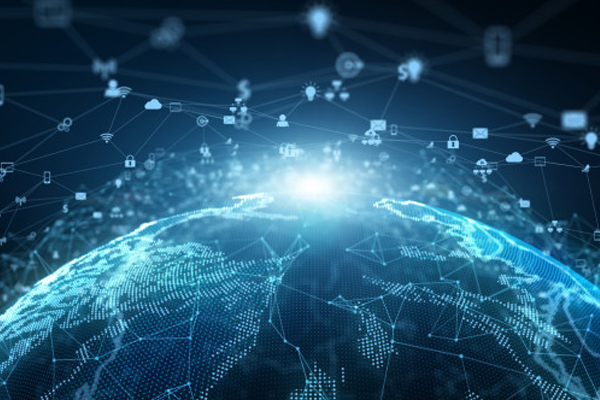
Influence Others: Networking is more transactional, more one-to-many. Whereas, meaningful connection building is much more one-on-one.
I was on a podcast called Seat at the Table. The first question is always your favorite restaurant. I got to tell her a sad story that my favorite restaurant closed during the pandemic but it’s reopening.
What is it?
It’s called Queen. Believe it or not, it’s between a Popeye’s and a McDonald’s on a busy street. However, it’s more than 60 years old. It’s Italian. They make their own gnocchi, burrata and bread. When you walk in, you’re greeted by the grandfather who founded the restaurant, his son and his grandson. To me, it is so Brooklyn. It’s always crowded even though it’s a little pricier than Popeyes and McDonald’s but there’s something genuine about that. It’s reopening so I am a super happy camper.
I think just having the things that you connect with in conversations. It wasn’t my intention when I did the radio show to make all these connections. I thought it’d be fascinating to learn about people but I’ll tell you doing the show, you get so much time, even if you’re talking 20 minutes, 30 minutes or whatever it is that you end up speaking with somebody. You make these connections that you’d never ever have made any other way. I was so pleasantly surprised by some of the side benefits of doing this. Sometimes doing something out of curiosity out of not having a goal in mind that you’re trying to get something out of somebody can come back and be wonderful.
I have seen a lot of people who have said nice things about your book, Whitney Johnson, for example, has been on the show. Randi Zuckerberg says something nice about your book. I got to watch her do burpees in a dress on stage at an event. I meet these incredible people because of this show and some of the things that come about because of this. Other than having your own radio show, podcast or something, are there other ways that you describe that people can have more time? Is it having a great elevator pitch? Is it having something else that we should be doing?
All of the above and the book has so many tips and tidbits. I’ll be honest with you, I am not a prescriptive person but writing a business book for McGraw Hill, I had to turn into one. You don’t get away with writing a business book without a complete methodology. The book is a handbook. It is not theoretical. There is some theory but it is much like, “Here are the ten steps you can take to do this thing.” There’s even a chapter on if you’re an introvert, how do you connect, how do you feel comfortable connecting and knowing that the world is evenly divided. There are ambient words in between.
One of the most important things is first doing that self-reflection of what is a meaningful connection to you and thinking about your goals and who you want to connect with that are going to help you meet those goals. Your question about, what are the mechanisms? That’s so personal because everyone has different ones that they’re comfortable with. It could be a blog, podcast, posting on various social media channels, hosting Zoom gatherings, at least in the present time or as we move back into some sense of normalcy, I likened it to going from FOMO to JOMO. Instead of Fear of Missing Out, why not do the Joy of Meeting Others. Don’t feel like you have to be the one inviting everyone but instead, invite three people and ask them to each invite one and voila. By doing that, you don’t have to worry about missing out on something else that’s happening that in the back of your mind feels that might be a better thing.
[bctt tweet=”Humor is one of the greatest means of connecting. ” via=”no”]I find it interesting how everybody has different networks and things. Clubhouse is popular right now for people who maybe don’t want the video aspect. Maybe other people are into the Zoom sessions and other people are into whatever the different and popular way of communicating is at the time. What do you think is going to happen after we get back to work with COVID? Do you think we’re going to have even more ways? Do you think people have Zoom fatigue or whatever you want to call it or just too much of being in front of other people? Do you think we miss it because we’ve been home so much?
Honestly, it’s too much of a generalization to be able to answer that for everyone. All the studies and surveys I’m seeing are citing almost opposite from each other. I’m seeing, “80% of workers don’t want to go back to the office,” and then I’m seeing, “70% of workers want to go back.” That depends on who’s doing the survey.
Eight percent of statistics are made up.
Here’s what I don’t think. I don’t think we’re going to go back to what we had before. My apologies to Delta, American, United, Marriott, Starwood or what have you. I don’t think people are going to be traveling 120,000 miles a year for those meetings that could easily be conducted over the various platforms. However, I fervently believe and my research shows me or taught me that hard, critical and meaningful conversations are best taking place in person.
Team building works best in person, where you can make eye contact and sense somebody else’s body language. All of that is difficult on the actual platforms we’ve been using. Does that mean they’re going away? No. I truly believe that if I was to add up everything I’ve read about this, the conversations I’ve heard and podcasts I’ve heard, we are going to be living in some hybrid for the next several years especially since there are places around the world where COVID is still ravaging. Not to be Debbie Downer here but we’re not out of the woods yet.
I hear the same thing in the hybrid situation. Eventually, if we go back to the working offices, maybe we don’t go in as often. We work out of our home more often but we eventually get together for some things and not as many things as others. That it’s going to take a new sense of how we connect as well. It’s a time to be looking at how we interact. I’m teaching so many online courses and one of the first courses I would teach would be all the stuff of how to be an online student. We talked about netiquette back in the day of how you don’t type in all caps and you don’t do certain things. You’re yelling if it’s all in caps or whatever. We’re going to have to have a new guidebook for how to communicate in this new world. This is timely, that you’ve come up with this. Did you write this during COVID? Did you know that you were going to write this and then COVID hit? How’d that come about?
It was developed years ago in response to my fear that we had gotten to a place where, one, we were slaves to technology. Two, the clicks, likes and followers became the way we measured our success in connecting and networking, myself included. I harken from a day when back in the late ‘60s and early ‘70s growing up in upstate New York, every morning at the breakfast table, I would vie for real estate for my bowl of cereal because the five local newspapers and yesterday’s New York Times and Boston Globe would be spread out. My parents would both be sitting there with scissors or a razor blade and madly clipping and cutting articles that made them think of people they knew, both professionally and personally.
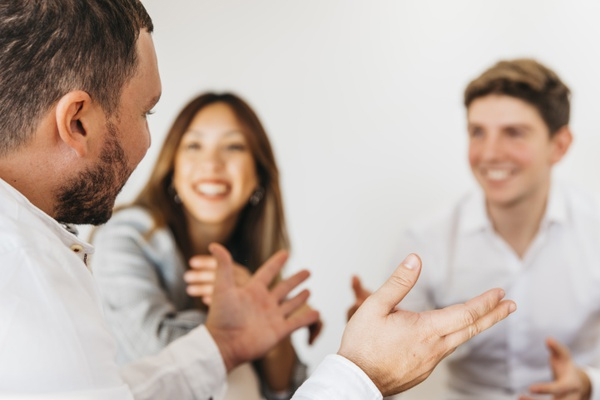
Influence Others: It’s not about asking people to introduce you so you can get something. Ask them to introduce you so you can be of support.
They would go to their respective manual typewriters and type short little misses and say, “Thinking of you, cousin Harry.” “Thinking of you, reporter Jim.” My mother worked in public relations for PBS and my father was a professor at a women’s college for more than 40 years. He not only would keep in touch with former students but then he would have their daughters and their granddaughters and he would stay in touch with them all through the postal mail up until he passed in 2008. That was my upbringing and here we are in the early decade of 2010 through 2020, social media has become so pervasive. I’m not against it and I’m not a Luddite. I love technology but I felt that the intentionality of reaching out with compassion and heart and how we can be of help was gone or at least, almost gone.
The original book proposal was all about that. I got the green light and I started writing in February 2020. The world shut down and all I had were the clicks, likes and followers. Throughout the book, interviewing people like Whitney Johnson, Adam Grant, Baratunde Thurston and people who have made it part of their career success to build meaningful relationships and connections, reversed my dubiousness or my cynicism. It helped me feel optimistic about the future because I think of anything throughout this pandemic. Thank goodness when I was writing it for about eight months, we didn’t know it was going to go on this long or I probably wouldn’t have even gone forward with the book at that point.
I have to say that the intentionality that I witnessed in every one of these interviews and in my own experience and seeing how people have become adept at using the chat function in all these platforms. Meaning, in the middle of a meeting, when we used to be in an office and we’d be in a conference room, you couldn’t have a side chat. It would be disrespectful to the host. Also, it’s like in school when you get yelled up by the teacher. With the chat function, we have gotten good at reaching out to coworkers, friends or to people we don’t even know and say, “I’d love to have five minutes with you after this. Do you have time? I’d love to learn more about your work.” Those types of things happen much more often than could have happened. I know we’re missing the watercooler moments, those serendipitous things and we all feel it but there is something else happening. That is leading me to believe that we are going to come back out of this and not be a slave to those clicks and likes. Maybe I’m overly optimistic but that’s the only way I know how to live.
There’s a lot of focus on certain things. I’m not big on elevator pitches and on “I want to be your whatever in my notes to people.” I often will reach out and say, “I’ve heard great things about you from so and so. I’m interested in following your work.” No more than that. Humor can draw my attention when people say something funny. Do you play humor into this or not?
There’s a lot of humor in the book and I think one of the greatest means of connecting is using humor and improv. It is definitely because it helps put everyone at ease. Not that you have to do that to connect with people but it’s another tool to have in your toolbox. It’s also not taking yourself seriously. We’re living in serious times. Some of the Oscar winners and contenders were dark but there’s also been a lot of plain fun that has come out of this. If we take it down to the level of connection, if you’re funny and engaging, people are going to be much more interested in connecting with you but it’s not a requirement.
What’s one of the things that you talk or write about in your book that you think people need to know most about?
First of all, if anything, before we can encourage people to connect, they need to understand what is the value of it and I was shocked to learn that if you make building meaningful connections a priority in your life, the chances of living a much longer life go up exponentially. Even more than eating kale and running every day. If I didn’t need another reason to convince you to make this a priority. Also, for those of you who run businesses, starting businesses or running nonprofit organizations, when you have a connected workforce and people that feel comfortable enough to become friends with their co-workers, the productivity increases also exponentially.
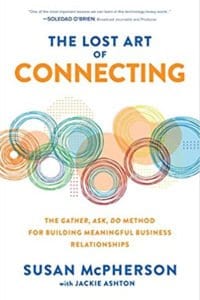
The Lost Art Of Connecting: The Gather, Ask, Do Method For Building Meaningful Business Relationships By Susan McPherson
People are much more likely to stay at the company and recommend the company. If you are a business person and you want to enhance your bottom line, make space for building relationships. Don’t relegate it to the annual sales conference or the monthly happy hour. Make this a priority and try to have five minutes at the beginning of every meeting whether it’s virtual or in-person where you have real conversations and don’t talk about the weather, which is the most common denominator that everybody goes to.
It’s painful. I think that anything would be more interesting to me. Sometimes coming up with unusual things to say can be so much more fun and open up such a much more interesting conversation. All the things you write about are important especially now. A lot of people are going to want to know how they can get your book and find out more from you. Is there some site or something you’d like to share?
There is an actual site called TheLostArtOfConnecting.com which gives you more info for the book and there are jumping-off points if you want to purchase it. You can get it at your favorite local indie bookstore or you can even borrow it from the library. I love libraries but whatever works most for your audience members. You can find me on any social platform @SusanMcP1 and the company I run is a social impact communications firm. I founded it at age 48 which I’m proud of. We can be found at McPStrategies.com.
Thank you so much, Susan, this was helpful. Many people could use that advice and I hope they check out your book.
Thank you, Dr. Hamilton. This was an absolute delight. Please let me know how I can be helpful to you at any point in time, tomorrow or in the future.
I appreciate that. This was so much fun.
—
I’d like to thank both Vanessa and Susan for being my guest. We get so many great guests on the show. If you’ve missed any past episodes, you can catch them at DrDianeHamilton.com. If you’re trying to take the Curiosity Code Index or the Perception Power Index, they’re all there on the site. You can find the drop-down menus at the top and at the bottom of the site for different ways to access the information there. I hope you take some time to explore some of these menus because we have some free chapters and different things that you can explore. If you’re interested in becoming certified to give the Perception Power index or the Curiosity Code Index, that information there as well. We offer asynchronous half-day training courses and I know a lot of people are doing that. A lot of consultants and professionals are interested. If you’re looking for that content, it’s all there on the site. I hope you enjoyed the episode and I hope you join us for the next episode of Take The Lead Radio.
Important links:
- You Have More Influence Than You Think
- The Lost Art of Connecting: The Gather, Ask, Do Method for Building Meaningful Business Relationships
- Albert Bandura – past episode
- Nick Epley
- Queen
- Whitney Johnson – Past Episode
- Curiosity Code Index
- Perception Power Index
- @SusanMcP1 – Instagram
About Vanessa Bohns
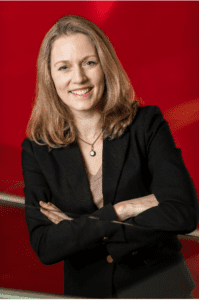 Vanessa Bohns is a social psychologist and professor of organizational behavior at Cornell University, holds a Ph.D. in psychology from Columbia University and an AB from Brown University.
Vanessa Bohns is a social psychologist and professor of organizational behavior at Cornell University, holds a Ph.D. in psychology from Columbia University and an AB from Brown University.
She is the author of You Have More Influence Than You Think: How We Underestimate Our Power of Persuasion, and Why it Matters.
Her writing has appeared in the New York Times and Harvard Business Review, and her research has been featured by the Wall Street Journal, the New York Times, and NPR’s Hidden Brain.
About Susan McPherson
 Susan McPherson is a serial connector, seasoned communicator and founder and CEO of McPherson Strategies, a communications consultancy focused on the intersection of brands and social impact. She is the author of The Lost Art of Connecting: The Gather, Ask, Do Method for Building Meaningful Relationships.
Susan McPherson is a serial connector, seasoned communicator and founder and CEO of McPherson Strategies, a communications consultancy focused on the intersection of brands and social impact. She is the author of The Lost Art of Connecting: The Gather, Ask, Do Method for Building Meaningful Relationships.
Susan has 25+ years of experience in marketing, public relations, and sustainability communications, speaking regularly at industry conferences, and contributing to the Harvard Business Review, Fast Company, and Forbes. She has appeared on NPR, CNN, USA Today, The New Yorker, New York Magazine and the Los Angeles Times.
Susan is a Vital Voices global corporate ambassador and has received numerous accolades for her voice on social media platforms from Fortune Magazine, Fast Company and Elle Magazine.
Love the show? Subscribe, rate, review, and share!
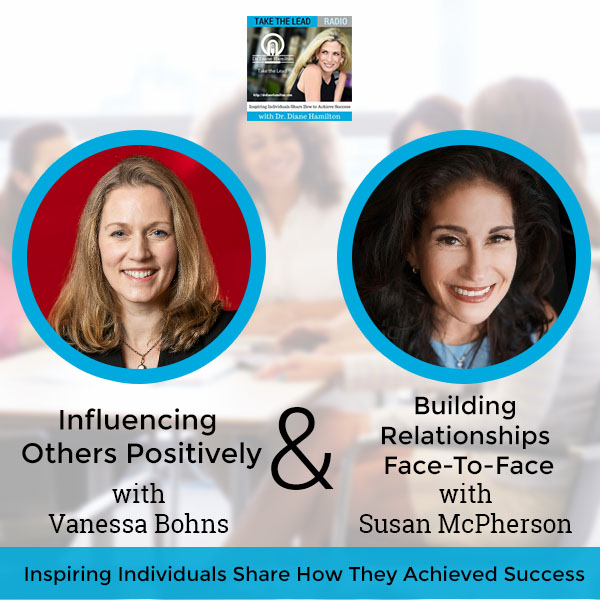

0 Comments